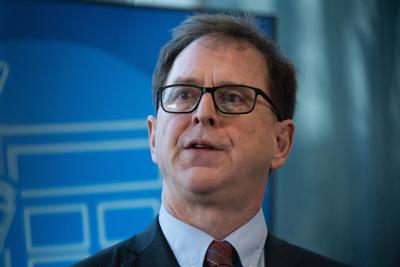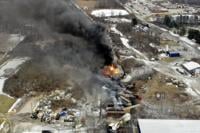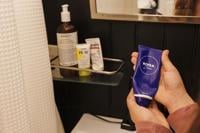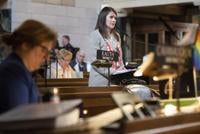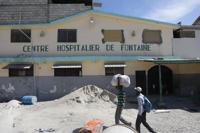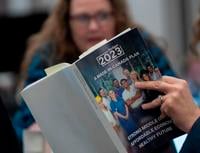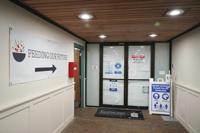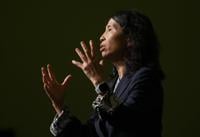VANCOUVER - The B.C. government says it's spending tens of millions of dollars to boost nuclear medicine amid forecasts that cancer diagnoses in the province will rise almost 50 per cent in the next decade.
The $32 million in funding will go toward operating imaging equipment for cancer diagnosis and expanding research.
Health Minister Adrian Dix said Tuesday that construction was underway in Vancouver for a $21-million cyclotron and radiopharmacy laboratory to increase the production of radioactive isotopes, used in equipment that conducts PET and CT scans.
There has been a worldwide shortage of the isotopes used in medical imaging machines that detect and monitor cancers.
Dix said the equipment is a “critical tool” in fighting cancer and will help ensure all patients in B.C. have “timely access” to the care they need.
The expanded access is part of B.C.'s 10-year cancer-care plan, and with a growing and aging population, Dix said the demand for cancer-care services is surging.
Hundreds of B.C. cancer patients have been sent to the U.S. for radiation treatment because of local treatment capacity shortfalls, under a program set up last year.
Dix said that by 2034, cancer diagnoses in B.C. would increase almost 50 per cent, from 30,000 a year to 44,000.
He said the "unprecedented growing demand" not only placed pressure on health-care resources but also required the province to do better to improve the quality of care.
He said the upcoming lab could help meet the diagnostic and treatment needs of cancer patients throughout the province.
"This shared facility will help BC Cancer not only rapidly increase the ability to generate radioisotopes, but will also help researchers project future demand for them, which is an important part of enhanced cancer care," said Dix.
Last May, the province announced that it would offer cancer patients the opportunity to receive their radiotherapy in Bellingham, Wash., with Dix calling it a temporary arrangement at the time.
He said Tuesday that around 480 people from B.C. had completed radiation therapy in Bellingham, and a further 540 had started consultation.
He said the program was "going well."
"A lot of people in B.C. who travel vast distances to get care in one of our six cancer centres, they're travelling a lot more than, say Vancouver or Richmond or Surrey to Bellingham," he said.
Another $11 million of the funding announced on Tuesday will go to the Triumf research centre, located at the University of B.C., to advance research in nuclear medicine.
Nigel Smith, CEO of the Triumf facility, said his facility already has 10 machines on-site, including six cyclotrons, which are used primarily for research purposes.
Smith said establishing expertise in cyclotron operations and isotope research "will have a profound impact in improving care for B.C. patients and positioning our province as the driving force in Canada's nuclear medicine research ecosystem."
This report by Ďă¸ŰÁůşĎ˛ĘąŇĹĆ×ĘÁĎ was first published Jan. 30, 2024.

